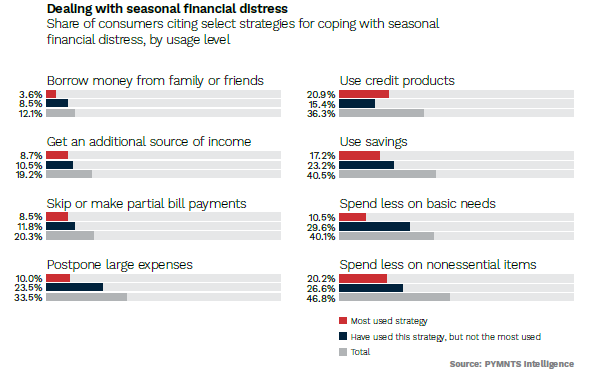Legal Battle: EBay, Banned Chemicals, And The Limits Of Section 230

Table of Contents
The Sale of Banned Chemicals on eBay: A Growing Problem
The unregulated sale of banned chemicals on online marketplaces like eBay presents a significant problem with far-reaching consequences. Various restricted substances, including hazardous pesticides, certain solvents, and precursor chemicals used in the production of illegal drugs, are frequently offered for sale, often circumventing established safety regulations. The potential consequences are severe, ranging from environmental damage and ecosystem disruption to serious health risks and even fatalities for unsuspecting buyers.
The lack of robust oversight and verification processes allows for the easy distribution of these dangerous substances, posing a substantial threat to public safety. While precise statistics on incidents directly linked to eBay sales are difficult to obtain, anecdotal evidence and reports from regulatory agencies highlight the scale of the problem. The ease of anonymity and the global reach of online marketplaces exacerbate the challenge, making effective enforcement considerably more difficult.
- Examples of banned chemicals sold on eBay: Certain organophosphate pesticides, specific types of solvents like methylene chloride, and precursor chemicals for methamphetamine production.
- Specific instances of harm: Reports of accidental poisoning from improperly labeled pesticides purchased on eBay, and environmental contamination from the improper disposal of chemicals acquired through the platform.
- Regulatory agencies involved: The Environmental Protection Agency (EPA), the Food and Drug Administration (FDA), and other international regulatory bodies depending on the specific chemical involved.
Section 230: The Shield and the Sword
Section 230 of the Communications Decency Act of 1996 provides significant legal protection to online platforms, shielding them from liability for user-generated content. This immunity has been a cornerstone of the internet's growth, fostering innovation and free expression. However, the application of Section 230 in the context of the sale of banned chemicals on eBay is fiercely debated.
Arguments for applying Section 230 to eBay center on the idea that the platform is merely a venue for transactions and is not directly involved in the creation or distribution of the banned substances. Proponents argue that holding platforms liable for the actions of their users would stifle innovation and restrict the freedom of expression online.
Conversely, opponents contend that Section 230 should not protect eBay from liability when it knowingly allows the sale of demonstrably dangerous and illegal goods. They emphasize the platform's responsibility to actively monitor its marketplace and prevent the sale of such items, arguing that eBay’s failure to adequately address this issue renders its Section 230 protection invalid in this specific context.
- Key provisions of Section 230: Protection from liability for user-generated content and the ability to moderate content without losing immunity.
- Arguments for eBay's immunity: eBay acts as a neutral platform; it is not the producer or distributor of the chemicals.
- Arguments against eBay's immunity: eBay has a responsibility to actively monitor its platform and prevent the sale of illegal and hazardous materials. Its failure to do so may negate its Section 230 protection.
eBay's Responsibilities and Efforts to Combat the Issue
eBay maintains policies prohibiting the sale of restricted and banned items, including many chemicals. These policies, however, are only as effective as their enforcement. eBay employs various monitoring and enforcement mechanisms, such as keyword filters, automated systems, and human review teams to detect and remove listings of banned chemicals. The effectiveness of these measures, however, remains a point of contention.
While eBay has invested in technology to combat this issue, improvements are crucial. The implementation of more sophisticated AI and machine learning algorithms could help identify and flag suspicious listings more effectively. Increased collaboration with regulatory agencies and enhanced seller verification processes could further strengthen eBay's efforts to prevent the sale of banned chemicals.
- eBay's policies: Clear policies outlining prohibited items and seller responsibilities.
- eBay's monitoring mechanisms: Keyword filters, automated systems, and human review teams.
- Potential technological solutions: Advanced AI and machine learning to improve detection and prevention capabilities.
The Broader Implications for Online Marketplaces and E-commerce
The legal battle surrounding eBay and the sale of banned chemicals has significant implications for other online marketplaces, including Amazon and Etsy. The outcome of this case could set a legal precedent, impacting the liability of online platforms for the actions of their sellers. It could also lead to increased regulatory oversight and stricter enforcement of e-commerce regulations globally.
The consequences extend beyond the legal sphere, impacting consumer safety and environmental protection. A stronger regulatory framework could improve consumer safety by reducing the availability of hazardous materials online. It could also lead to more sustainable e-commerce practices, reducing environmental harm from the unregulated sale and distribution of dangerous chemicals.
- Potential changes to platform policies: Increased scrutiny of listings and stricter enforcement of existing policies.
- Increased regulatory oversight: More stringent regulations on online marketplaces and increased penalties for non-compliance.
- Impacts on seller liability: Increased responsibility for sellers to ensure compliance with regulations.
Conclusion: The Ongoing Legal Battle and its Significance
The legal battle between eBay, the sale of banned chemicals, and the interpretation of Section 230 highlights the complex interplay between online platforms, user-generated content, and regulatory responsibility. The core issues revolve around the extent of platform responsibility for the actions of their users and the evolving interpretation of Section 230’s protection in the face of clear public safety concerns. The outcome will significantly impact the future of e-commerce regulation and online safety.
This case underscores the urgent need for continued discussion and reform regarding Section 230 and the evolving challenges of regulating online marketplaces. Staying informed about ongoing legal developments related to "eBay legal battles," "Section 230 reform," and the broader issue of "banned chemicals online" is crucial. We encourage further research into these critical areas to ensure the safe and responsible future of e-commerce.

Featured Posts
-
 Quentin Tarantino Zasto Odbija Gledati Ovaj Film S Johnom Travoltom
Apr 24, 2025
Quentin Tarantino Zasto Odbija Gledati Ovaj Film S Johnom Travoltom
Apr 24, 2025 -
 Ella Travolta Zavirite U Zivot Kceri Holivudske Legende
Apr 24, 2025
Ella Travolta Zavirite U Zivot Kceri Holivudske Legende
Apr 24, 2025 -
 The Bold And The Beautiful Luna Raises The Stakes Liam And Steffys Future In Jeopardy
Apr 24, 2025
The Bold And The Beautiful Luna Raises The Stakes Liam And Steffys Future In Jeopardy
Apr 24, 2025 -
 Nonessential Spending Decline A Challenge For Credit Card Companies
Apr 24, 2025
Nonessential Spending Decline A Challenge For Credit Card Companies
Apr 24, 2025 -
 Zuckerbergs Next Chapter Navigating A Trump Presidency
Apr 24, 2025
Zuckerbergs Next Chapter Navigating A Trump Presidency
Apr 24, 2025
